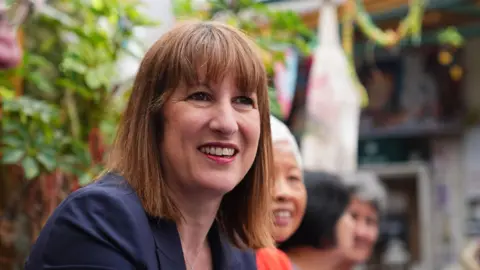Rachel Reeves, the Chancellor of the Exchequer, is on the brink of revealing a significant spending review that outlines the financial allocations for essential public services such as the National Health Service (NHS), schools, and police. This review will be pivotal as it aims to detail how the Government plans to manage its finances up until the next general election, which is anticipated to occur in 2029. Scheduled for presentation on Wednesday, Reeves’ speech will emphasize a commitment to “invest in Britain’s renewal,” highlighting an additional £113 billion earmarked for critical infrastructure, including energy and transportation projects.
While the proposed investment appears generous, it is important to note that specific government departments might face real-terms cuts in funding. This is particularly so as Reeves looks to prioritize expenditures in health and defense sectors. The spending review will not only set the daily operational budgets for the next three years but will also outline investment plans extending up to four years.
Behind the scenes, negotiations have been fraught with tension between ministers and the Chancellor regarding budget allocations for diverse departments. Notably, Home Secretary Yvette Cooper secured a funding agreement as recently as Monday, following calls from police leadership for improved financial resources. Furthermore, Housing Secretary Angela Rayner finalized an agreement on her department’s budget, which is anticipated to receive £39 billion aimed at enhancing social and affordable housing over the upcoming decade. This substantial investment aligns with the Government’s ambitious target of constructing 1.5 million new homes by 2030.
Among the commitments included within the spending review, Reeves has pledged to maintain the £3 cap on bus fares across England until March 2027. The Chancellor has openly acknowledged the difficult decisions regarding funding, attributing the financial constraints to economic realities stemming from sluggish growth, soaring government borrowing costs, and global uncertainties.
In her last autumn budget, Reeves announced tax hikes totaling £40 billion intended to bolster the NHS and other essential services. In her upcoming remarks, she is set to assert that her budgeting proposals are feasible due to the stability she has introduced through previous choices. However, the Institute for Fiscal Studies (IFS)—a prominent think tank—has cautioned that difficult choices are unavoidable, hinting that some departments may see funding reductions as rising costs and demand increase.
The IFS has highlighted that the decision concerning NHS funding is one of the most consequential elements in the spending review. The Department of Health and Social Care (DHSC) is projected to receive a day-to-day budget of £202 billion for the fiscal year 2025-26, correlating to 39% of the total daily departmental spending. The IFS has warned that significantly escalating NHS funding would necessitate cuts in real terms for other departments or evoke further tax increases in the upcoming autumn budget.
Despite pressure to soften her stance on borrowing or raise taxes further, Reeves has maintained her pre-set rules, insisting that daily government expenditures must be funded by tax earnings, not borrowing, while ensuring national debt declines as a share of GDP over a five-year term. She has notably resisted calls from her party members to alter this approach, choosing to prioritize financial stability over lax fiscal policy.
In a strong message set to resonate with MPs and the public, Reeves is expected to advocate for her financial choices by contrasting them with a scenario of chaos and decline. She will promote infrastructure investments amounting to £14 billion for the Sizewell C nuclear facility and £15.6 billion for local transportation projects, framing her financial decision-making as aligning with the aspirations of working people across the UK.
Conversely, criticism from political adversaries, including Conservative shadow chancellor Mel Stride, has surfaced, accusing the Labour government of “spending money it doesn’t have” and warning of the repercussions—namely increased borrowing and taxation. The Liberal Democrats have also urged for immediate actions to stimulate economic growth to safeguard public services from potential budget cuts.
As Rachel Reeves prepares to unveil her spending plans, the stakes are particularly high, not only for her government but for the broader public, who remain watchful of how these fiscal decisions will impact essential services moving forward.



